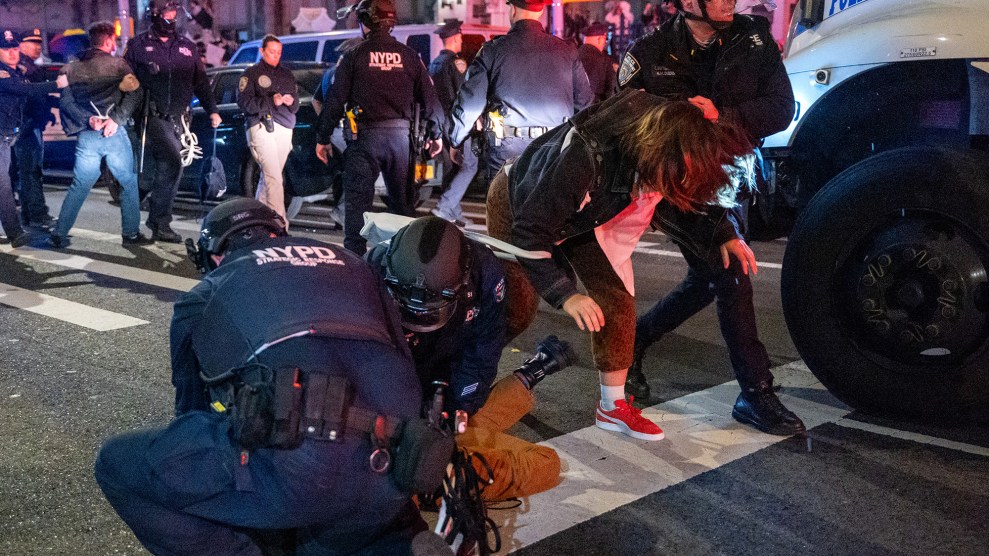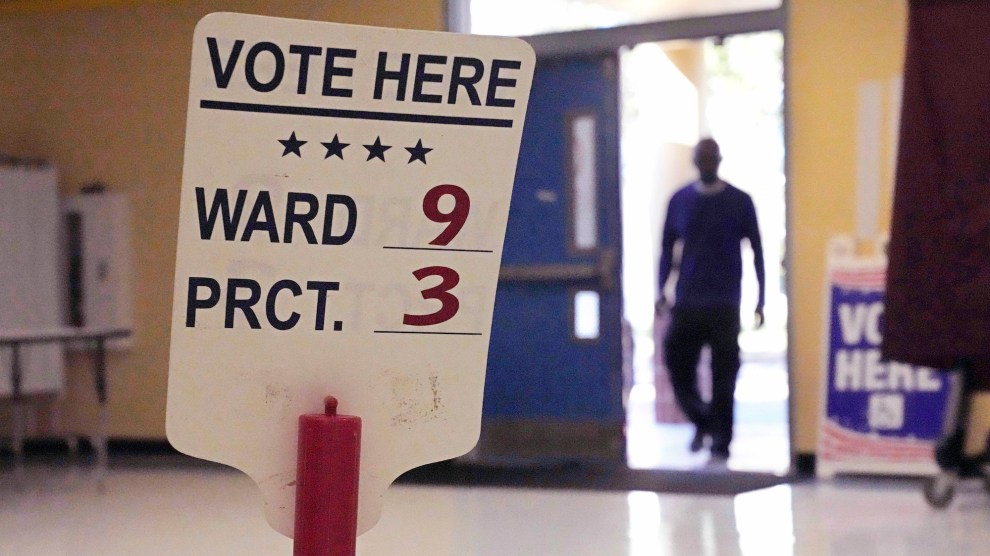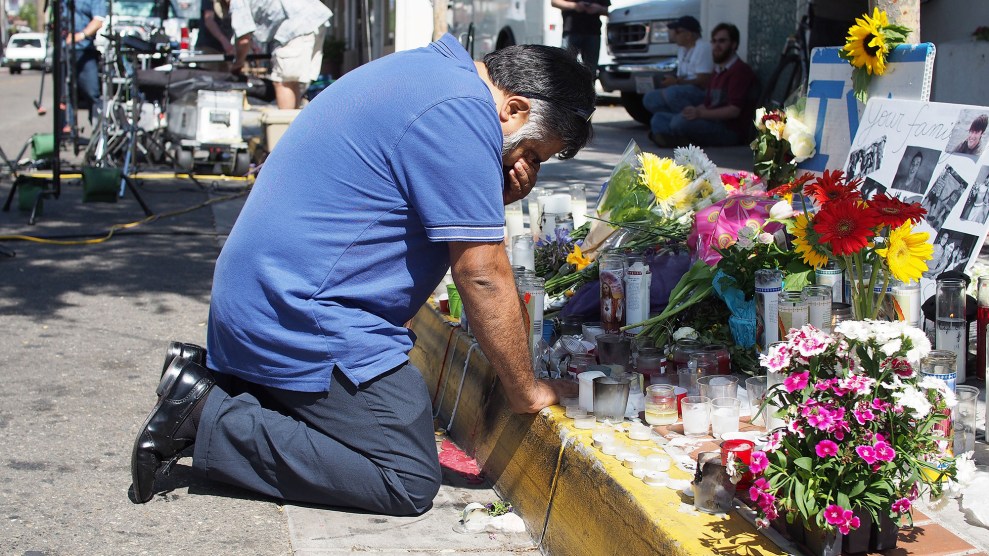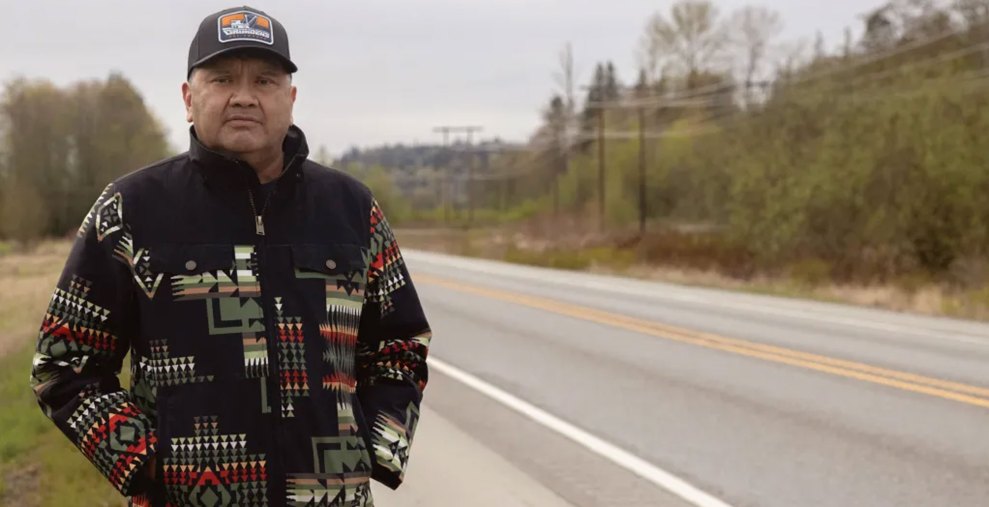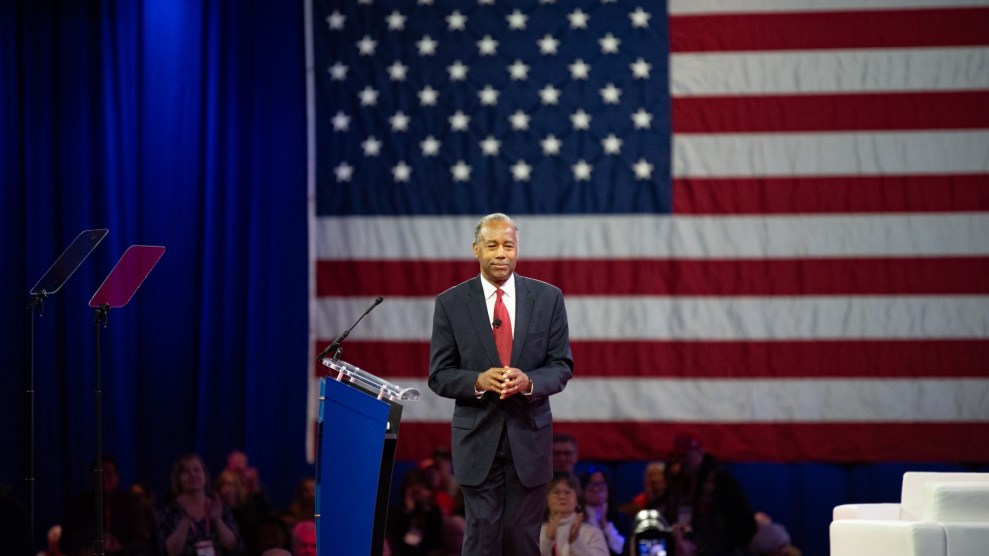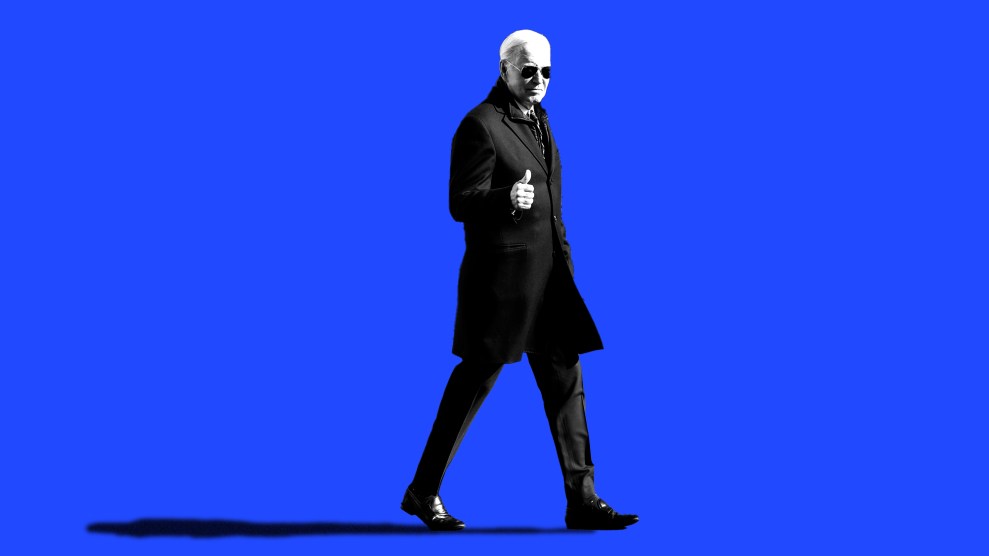What began as a modest effort by Orange County, Calif., school voucher activists linked to the religious right has mushroomed into a nationwide, GOP-backed drive to cripple the political power of organized labor and tilt the results of the November congressional elections.
Advocates of the so-called Paycheck Protection movement have drafted several state ballot initiatives, as well as state and congressional legislation, for consideration this year. If passed, the measures would force unions to secure annual written approval from each member before spending any portion of their dues on political activities. In some extreme cases, the measures would even apply to any activities that do not relate specifically to contract bargaining and labor-management relations, including lobbying, political education, and get-out-the-vote drives.
“This all started with a group of three guys in California,” says Grover Norquist, the GOP operative who heads the Washington, D.C.-based Americans for Tax Reform (ATR) and a backer of the movement. “My contribution has been to take it nationwide, as a 50-states project. We’re in 35 now, and we’ll have 45 by the end of the year.” The “three guys” Norquist refers to, Jim Righeimer, Frank Ury, and Mark Bucher, are founders of an Orange County pro-school-voucher group called the Education Alliance, which focuses on electing conservative Christians to local school board positions. The alliance has received the majority of its funding from Howard Ahmanson, a wealthy businessman who reportedly funnels millions to radical-right groups and is linked to the fundamentalist Colorado-based Focus on the Family. Across the country, voucher advocates (who seek to use taxpayer money to enable parents to send their children to private schools) have been fighting a long-running battle against teachers’ unions, including the National Education Association (NEA) and the American Federation of Teachers.
Five years ago, Righeimer, Ury, and Bucher backed Proposition 174, an initiative that would have allowed the use of school vouchers in California, but were soundly defeated by opposition forces led by the NEA. “It lost big,” Bucher admits. Angered by the unions’ ability to mobilize resources, and inspired by Proposition 134, the Fair Campaign Practices Act, a similar but less ambitious measure that passed in Washington state in 1992, Bucher and his allies began making plans to take the Paycheck Protection idea to voters in California.
 |
 |
 |
|
| Stymied by union-led opposition to Proposition 226 in California, Grover Norquist (left) and Gov. Pete Wilson (right) sent out this misleading official-looking letter to voters in the state. It contained a plea from Norquist asking voters to place Proposition 226 on the ballot. | |
Their work gained the attention of two influential members of Newt Gingrich’s “kitchen cabinet,” Norquist and J. Patrick Rooney, a wealthy Indiana insurance executive who supports a host of right-wing causes. Still seething over the AFL-CIO’s $35 million war chest in the 1996 elections, which came close to returning the House to Democratic Party control, the Gingrich allies seized on the Paycheck Protection idea as a way to weaken labor. At a critical moment last year, Rooney stepped in to help finance the ballot effort in California—”I salvaged the campaign,” he says—and, with Norquist, promoted it in Congress and in dozens of states, winning the support of Senate Majority Leader Trent Lott, Gov. Pete Wilson (the campaign’s co-chairman in California), and other GOP leaders.
Congress is currently debating two Paycheck Protection bills, and initiatives may be on the ballot in a half-dozen states by the next elections. Though each measure differs slightly, the more stringent proposals would dramatically undercut labor’s ability to engage in basic legislative and electoral work. That’s because the cost of collecting millions of signed forms from union members every year would be prohibitive.
The pivotal battle will take place on June 2 in California, where the measure is known as Proposition 226. Both sides plan to fund a costly advertising duel over the airwaves this May, part of an even more expensive nationwide campaign.
Whether the Paycheck Protection measures win or lose, the GOP figures the AFL-CIO will be so preoccupied with the issue, and so drained of resources fighting it, that it won’t be able to have much of an impact on the congressional elections in November.
“Our team is going to spend $10 million [in California],” says Norquist. “Their team will spend $40 million. And they’re gonna lose.” Rooney, who ponied up $49,000 in seed money to get the movement jump-started last year, says that he will help raise the money needed to rally voters behind it. By mid-February, organizers had raised $1.3 million for Proposition 226. AFL-CIO officials say it will take a minimum of $10-$12 million to beat back the initiative in California.
Advocates of Paycheck Protection take pains to disguise the drive’s anti-labor implications. “This is a fairness issue, period,” says Rooney. “No employer and no union should have the ability to take any worker’s money and use it for political purposes without the worker’s consent. They’ve got to ask.” They also describe it as central to campaign finance reform, no doubt hoping that it will prevent “special interests” (read: unions) from exercising undue electoral influence. (Indeed, in California organizers call Proposition 226 the Campaign Reform Initiative.) Yet what many voters don’t know is that Paycheck Protection has nothing at all to do with political contributions to federal candidates. Although unions spend millions in independent campaign expenditures (the AFL-CIO spent $35 million on TV ads during the 1996 elections), they are prohibited from making contributions directly to federal campaigns, except through political action committees. PAC money must be raised separately from union dues, and so would be unaffected by Prop. 226 and other such measures.
It’s especially ironic that the initiative’s proponents speak out in favor of campaign finance reform, since backers like Rooney and Ahmanson regularly make big-money donations to political campaigns. Asked about his own political largesse, Rooney frankly admits, “I’m a practical man. The contributions are just to help me get an interview. I do believe it does open doors.” Since 1992, Rooney, through his insurance business, has reportedly given well over $1 million to Republicans. He’s also funded the Gingrich-linked Progress and Freedom Foundation, as well as the American Legislative Exchange Council.
In California, polls show that Proposition 226 has wide support. “What they’re trying to do is to take working families out of the political equation,” says Steve Rosenthal, the AFL-CIO’s political director. “I’ve been in the labor movement for 18 years, and this is the worst assault I’ve seen.”

